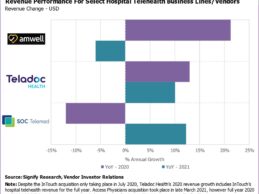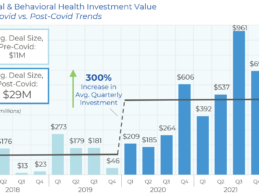In our ever-changing world, clinicians nowadays must find more efficient ways to operate with fewer resources. Increased patient loads, reimbursement changes, rule and regulation adjustments and thin margins, all while being short-staffed can be compared to a smoldering bonfire that reignites every time the wind blows. As if that weren't enough, post-acute providers will begin to feel even more heat if they don’t embrace interoperability. Our global demographics simply will not be able to
Read More
How Patient Movement Benefits from Standardized Acuity Scoring
Nurses and providers typically assess patient acuity and volume at the beginning of their shift, whether formally or informally. Managers use patient acuity to balance nursing assignments, and nursing staff uses it to determine which patient care action should be prioritized next. Taking a standardized approach to acuity assessments not only provides more objectivity, but also gives hospitals the data they need to make a variety of tactical and strategic decisions, from daily unit staffing to
Read More
Reproducibility, Trust, and the Digital Laboratory
Over the last decade, there has been an increasing recognition that results published in scientific journals often cannot be reproduced by other scientists. This has been called the “reproducibility crisis” and has been described in a number of studies. A 2016 Nature article reported that more than 70% of surveyed researchers tried and failed to reproduce another scientist's experiments, and more than half have failed to reproduce their own experiments. A 2021 study reported that fewer than half
Read More
Hospital Telehealth Vendor Financials Round Up – Teladoc Health, Amwell & SOC Telemed
Several hospital telehealth vendors enjoyed great success in 2020 as they benefitted from unprecedented demand for their IT and services during the pandemic. But as lockdown restrictions were lifted and the strain on hospitals’ in-house capacity across the ICU and other acute care wards eased into the second half of 2021, were the vendors able to maintain their growth? With full-year results from several of the leading hospital telehealth vendors now published, here’s our take on the recently
Read More
ePROs: Better Patient Input for Better Trial Output
During the pandemic, electronic clinical outcomes assessments (eCOAs) gained prominence as sponsors looked for more agile tools to help them capture patient data remotely through decentralized clinical trials (DCTs). From the adoption of virtual models like eCOAs and DCTs, a new opportunity emerged to enhance the patient experience. Decreasing the amount of time spent on on-site appointments helped reduce patient burden. Additionally, sponsors gained real-time insights on how patients interact
Read More
Patient Flow Challenges Contributing to Provider Burnout
There has been frequent reporting about the problem of provider workforce shortages within hospitals and health systems and the related burnout experienced when working in high-stress situations during the Covid-19 pandemic. There are pre-existing and contributing patient flow challenges that have been exacerbated by the pandemic, which can lead to burnout, and therefore are worth discussing.
Exposing the Problem
The extent of provider burnout over the course of the pandemic is well
Read More
Delivering Patient-Centered Care Means Decluttering the Digital Health Landscape
Digital health companies (DHCs) and their solutions continue to grow at a rapid pace. This is in part being fueled by the record funding for DHCs, with over $29 billion for US-based companies in 2021 alone. As a result, patients are inundated with solutions from every direction – from employers, health plans, and directly through consumer-oriented apps and wearables. Physicians are also getting into the mix by directly prescribing digital therapeutics. On the surface, the blossoming of the
Read More
How Healthcare Providers Are Adapting in the Era of Telehealth, and Why Radiology was Uniquely Suited to Go Hybrid
As hospitals and private health offices nationwide slowly begin to emerge from the COVID-induced challenges posed over the last two years, there is a new understanding of, and necessity for, adaptable medical technology and practices. Changes in the medical environment are becoming more important to the general public than ever before, with telehealth as a growing–and most likely permanent–practice. For healthcare providers under immense pressure to provide top care to COVID and non-COVID
Read More
Analysis: Seeking Balance in the Hyperactive Mental Health Tech Market
The prevalence of mental and behavioral health conditions has been on the rise in recent decades, further aggravated by the pandemic in the last two years. Social isolation, grief from the loss of loved ones, fear of contracting the virus, and financial worries were all major stress factors that increasingly affected the mental wellbeing of the population, and the resulting statistics are startling: the average share of adults with symptoms of anxiety or depressive disorders jumped from 1
Read More
How Can We Reduce Clinician Burnout? Improving Patient and Caregiver Engagement
Even as we (hopefully) approach the tail-end of the latest COVID-19 wave, one growing healthcare challenge continues to worsen: clinician burnout. Nurses, physicians, schedulers, and other members of care-provider teams continue to post rising rates of burnout. They’re feeling overwhelmed and underappreciated due to factors such as hectic workplaces and schedules, extended workloads, and excessive administrative tasks. This is an alarming trend that the entire healthcare industry needs to be
Read More










